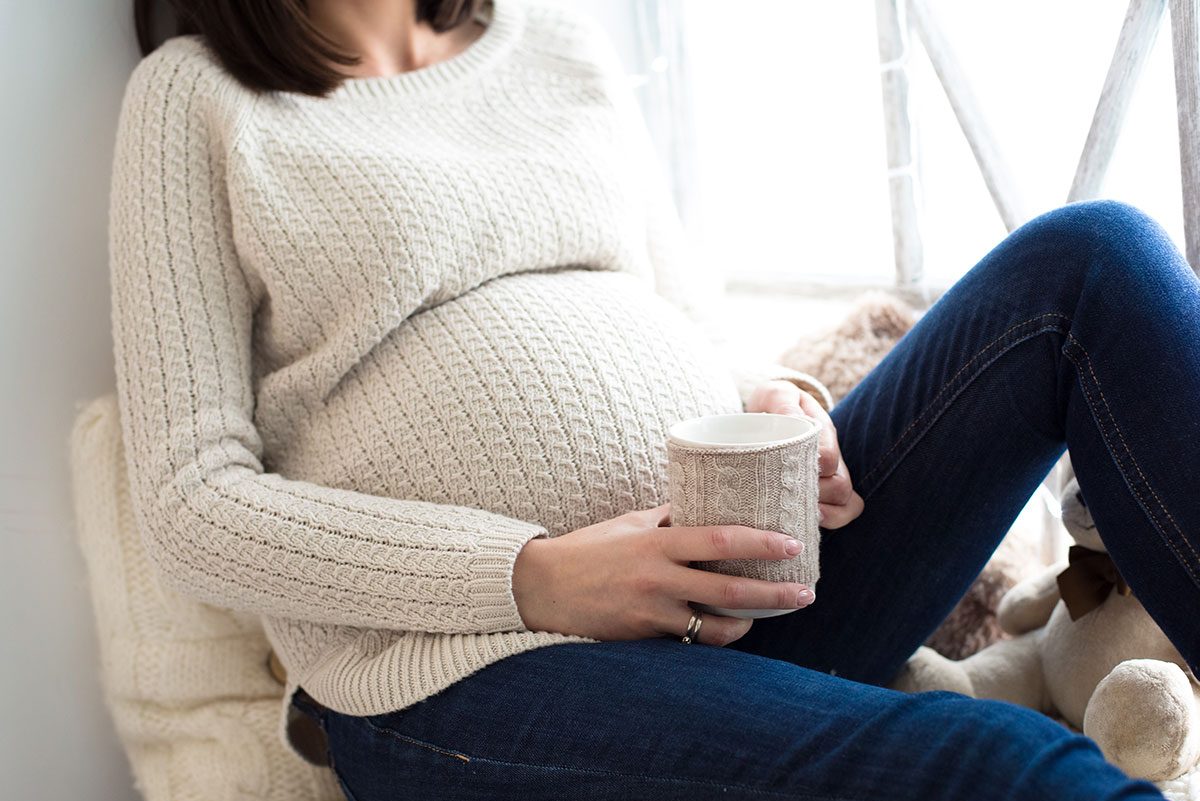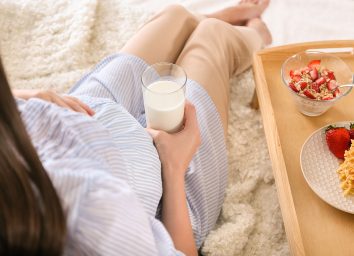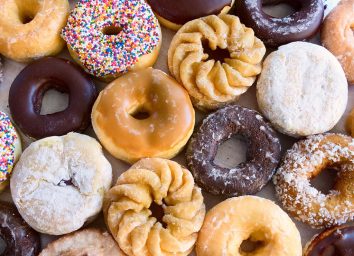One Major Side Effect of Drinking Coffee Every Day While Pregnant, Says New Study

Drinking coffee every day comes with both upsides and downsides. But if you’re pregnant, daily caffeine consumption could pose more serious risks. The American College of Obstetricians and Gynecologists (ACOG) recommends no more than 200 milligrams (mg) of caffeine per day, which is about the amount that’s in a 12-ounce cup of coffee. There have been conflicting studies done on whether more than 200 mg of caffeine can cause miscarriage.
A new study published by JAMA Network Open found that there may be an additional risk associated with drinking even moderate amounts of coffee during pregnancy. The study found that pregnant women who consumed as little as half a cup of coffee per day on average gave birth to slightly smaller babies than women who didn’t consume any caffeine. (Related: The 7 Healthiest Foods to Eat Right Now).
The study involved over 2,000 racially and ethnically diverse women who participated when they were between 8 and 13 weeks pregnant. Babies born to the women who had the highest levels of caffeine were an average of 3 ounces lighter at birth, 0.17 inches shorter, and had head circumferences that were 0.11 inches smaller. And women who had the caffeine equivalent of half a cup of coffee a day had babies who were 2.3 ounces lighter than women who didn’t have any caffeine.
Smaller birth size can pose risks to babies later in life, including an increased chance of diabetes, heart disease, and obesity.
A possible explanation for the link between caffeine consumption and smaller birth size is the theory that caffeine causes the blood vessels in the uterus and placenta to constrict. This in turn could reduce the blood supply to the fetus and inhibit growth. Researchers also believe that caffeine could affect fetal stress hormones, which puts them at greater risk for rapid weight gain after birth and for obesity, heart disease, and diabetes later in life.
This isn’t the first study to find this link. A 2008 study that followed over 2,600 participants, also found that caffeine consumption during pregnancy restricted the growth of the fetus. In that study, the researchers pointed out that people often forget that tea and coffee aren’t the only two beverages that contain caffeine. Chocolate, energy drinks, soda, and even some over-the-counter pain relievers also contain caffeine.
“Until we learn more, our results suggest it might be prudent to limit or forego caffeine-containing beverages during pregnancy,” Dr. Katherine L. Grantz, the lead researcher, said in a statement. “It’s also a good idea for women to consult their physicians about caffeine consumption during pregnancy.”
Giving up coffee doesn’t have to be difficult—check out this list of foods that’ll help keep you energized.








